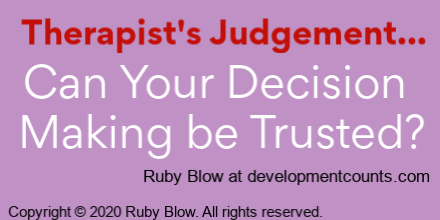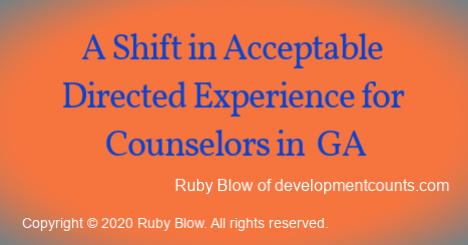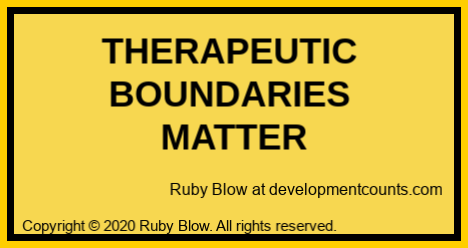Why Background Checks?
Many employers require background checks and drug screens of the people they hire. Background checks and drug screens cannot predict or deter legal and ethical problems. However, both can provide information to employers to assist them with hiring decisions.
Supervisee’s Privacy & the Supervisory Relationship
Supervisees have rights based on our codes of ethics (which are based on moral principles). Supervisees are vulnerable to abuse and mistreatment from employers and supervisors. Some employers fail to pay their staff or set unreasonable work expectations without adequate support and pay. Still other employers may have people in leadership roles or the actual owners who may be engaged in unethical and criminal behavior from fraud to sex crimes.
A background check, regardless of what information it contains, sets the stage for the beginning of the employer and/or supervisory relationship. These relationships require trust and the fulfillment of mutual obligations and responsibilities.
Clinical Supervision (You choose me and I choose you)
Clinical Supervision post grad toward licensure at its best is a mutual choice. Clinical supervision that is in part “required” as part of employment may or may not attend to the total professional development of the supervisee. This is true of private supervision as well based on the supervisor’s approach.
The clinical supervisor is providing oversight of the supervisee’s work, however, beyond that they are attempting to facilitate the professional development and identity of the clinician. Clinical supervision at its best involves an opportunity for the supervisor and supervisee to select one another.
Both parties may start out with limited knowledge of one another. What would you want to know at the outset? As a supervisor? As a supervisee?
What Supervisors Want to Know…
In no particular order, what supervisors want to know includes, but is not limited to, the following:
- Am I the right “fit” for this supervisee? Can I provide what this person needs?
- Does this supervisee qualify to work toward licensure?
- Are there any location or fee related matters that can’t be resolved?
- Do I believe I can connect with this person? In other words…will I enjoy working with them?
- Is this supervisee receptive to learning? Are they open to feedback?
- Does this supervisee have any problems in their history or problems in the present that will cause them to lose focus?
- Does this supervisee truly have a desire to be a clinician?
- Do I think this supervisee might cause harm to others based on boundary problems or other impairments that impact judgement and decision making?
- Is this supervisee trustworthy?
- Can this supervisee authorize my authority as a supervisor? In other words, can they respect me as a supervisor and what I have to offer?
How supervisors grapple with the answers to these questions often depends on where they are in their supervisory development and whether or not they have mentoring and/or consultation in their work as a supervisor.
What Supervisees May Want to Know about Supervisors
It’s been a long time since I was a supervisee, but based on my frequent contact with those seeking supervision, below is a partial list of their probable concerns:
- Can I afford this supervisor?
- Do they offer supervision at a time that works for my schedule? Is this supervisor available?
- Does the location of the supervisor work for my life?
- Does this supervisor come highly recommended?
- Can this supervisor help me reach my professional goals?
- Does this supervisor have enough experience clinically?
- Does this supervisor have enough supervisory experience?
- Can I trust this supervisor to treat me fairly?
- Does this supervisor allow me to be myself or do they exude undue influence?
- Is this supervisor professional? Will I have difficulty getting my needs met?
How supervisees get to these answers is in part due to initial impressions as well as their experience over time. To a certain degree, the supervisee is trying out the supervisor for the first 3-4 months of supervision. This is an unspoken process. However, it means the difference between a supervisee sticking with the supervisor or finding other options.
Vicarious Liability
At the heart of the matter for supervisory relationship and work is vicarious liability. This involves the link between the supervisee’s action or inaction and the supervisor’s responsibility for their action or inaction. The fact of vicarious liability promotes anxiety for supervisors. Supervisors accept a risk to their own license to practice when they supervise.
Supervisors should make sure that supervision and consultation are covered by their liability insurance. Supervisors need to meet regularly with supervisees in order to monitor both their work and also their mindset about the work. Evaluation is an important aspect of oversight. However, above all, the biggest risk to supervisors is negligence of their duties to supervisees.
Lastly, supervisors must pay attention to red flags and warning signs that a supervisee may be engaging in unethical behavior or that they may not be competent to practice. Next week, I will write about red flags for supervisors and supervisees.
What do you think?
As for background checks, I’d like to know from those of you who are comfortable sharing. Are you requiring background checks from your supervisees? If you are a supervisee, how would you react to a potential supervisor requiring a background check?
Copyright © 2018 Ruby Blow. All rights reserved.
Share your thoughts on Linkedin, Facebook, Twitter or log in to one of your accounts below to comment. Subscribe to my YouTube channel.





